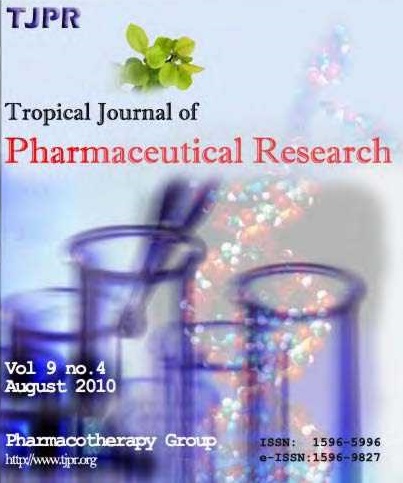缬沙坦联合氢氯噻嗪治疗高血压性心脏病的疗效观察
IF 0.6
4区 医学
Q4 PHARMACOLOGY & PHARMACY
引用次数: 0
摘要
目的:探讨缬沙坦联合氢氯噻嗪治疗高血压性心脏病的疗效。方法:对2020年8月至2022年10月安徽医科大学六安医院120例患者的病例资料进行回顾性分析。根据治疗方案的不同,将54例高血压心脏病患者单独服用缬沙坦(80 mg,每日1次),连续3个月作为对照组(CG),同时记录66例缬沙坦联合收缩压(SBP)、治疗效果、舒张压(DBP)及不良反应发生情况。结果:SG组收缩压、舒张压、LVMI、LVPWT较CG组明显降低,EF治疗后明显升高(p <0.05)。两组患者治疗后收缩压、舒张压、LVMI和LVPWT均较治疗前显著降低,但EF显著升高(p <0.05)。在SG中,有显著增加(p <与CG相比,总有效率显著降低(p <与CG相比,总不良反应发生率降低0.05)。结论:缬沙坦联合氢氯噻嗪治疗高血压性心脏病比缬沙坦单用更有效。然而,联合治疗在引入临床实践之前,还需要进行进一步的临床试验。本文章由计算机程序翻译,如有差异,请以英文原文为准。
Efficacy of the combination of valsartan and hydrochlorothiazide in the treatment of hypertensive heart disease
Purpose: To investigate the effectiveness of the combination of valsartan and hydrochlorothiazide in managing hypertensive heart disease.Methods: From August 2020 to October 2022, the case data of 120 patients in Lu’an Hospital of Anhui Medical University, Lu’an, China were analyzed retrospectively. Based on the different treatment options, 54 patients with hypertensive heart disease who received valsartan alone (80 mg, once daily) for 3 months were placed in control group (CG), while 66 patients who received valsartan combined with Systolic blood pressure (SBP), therapeutic effect, diastolic blood pressure (DBP), and incidence of adverse effects were also recorded for CG and SG.Results: In the SG, there were significant reductions in SBP, DBP, LVMI and LVPWT compared to CG, while EF showed significant increase after treatment (p < 0.05). In both groups, SBP, DBP, LVMI and LVPWT decreased significantly after treatment compared to pre-treatment values, but EF however showed a significant increase (p < 0.05). In the SG, there was a significant increase (p < 0.05) in the total effective rate compared to CG and there was also a significant reduction (p < 0.05) in the total incidence of adverse effects compared to CG.Conclusion: Valsartan combined with hydrochlorothiazide is more effective in treating patients with hypertensive heart disease than valsartan monotherapy alone. However, the combination treatment should be subjected to further clinical trials prior to its introduction into clinical practice.
求助全文
通过发布文献求助,成功后即可免费获取论文全文。
去求助
来源期刊
CiteScore
1.00
自引率
33.30%
发文量
490
审稿时长
4-8 weeks
期刊介绍:
We seek to encourage pharmaceutical and allied research of tropical and international relevance and to foster multidisciplinary research and collaboration among scientists, the pharmaceutical industry and the healthcare professionals.
We publish articles in pharmaceutical sciences and related disciplines (including biotechnology, cell and molecular biology, drug utilization including adverse drug events, medical and other life sciences, and related engineering fields). Although primarily devoted to original research papers, we welcome reviews on current topics of special interest and relevance.

 求助内容:
求助内容: 应助结果提醒方式:
应助结果提醒方式:


